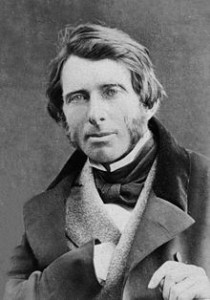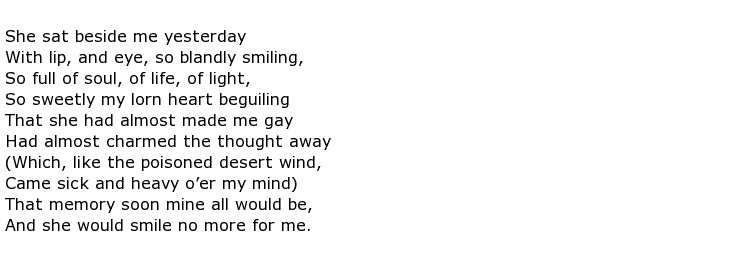 John Ruskin was a leading philanthropist of the 19th century who cared passionately about the poorer people in English society and the effects that the Industrial Revolution was having on their quality of life. He travelled widely, both as a boy with his family, and later in life. He loved the Alpine region and was influenced by the art, culture and architecture of the great European cities that they visited. He made his own sketches wherever he went and wrote down descriptions in journals that were subsequently published. His knowledge of art was vast and he was a renowned art critic as well as being a talented water colour painter in his own right. He always tried to make a connection between nature and society in both his writings – poetry, essays and the like – and his drawings which covered fanciful architecture, both seen and imagined, and everything in the natural world that he came across.
John Ruskin was a leading philanthropist of the 19th century who cared passionately about the poorer people in English society and the effects that the Industrial Revolution was having on their quality of life. He travelled widely, both as a boy with his family, and later in life. He loved the Alpine region and was influenced by the art, culture and architecture of the great European cities that they visited. He made his own sketches wherever he went and wrote down descriptions in journals that were subsequently published. His knowledge of art was vast and he was a renowned art critic as well as being a talented water colour painter in his own right. He always tried to make a connection between nature and society in both his writings – poetry, essays and the like – and his drawings which covered fanciful architecture, both seen and imagined, and everything in the natural world that he came across.
Ruskin was born in London in February 1819. His parents soon recognised that he had a talent for writing and drawing although his mother, a devout evangelist, hoped that he might one day become a minister of religion. She got him to read the Bible from beginning to end and it was thought that Ruskin picked up the imagery that he found here and used much of it in his own writing in future years. As a family they would read together great poetic works by the likes of Walter Scott, Shakespeare and Byron.
After his mostly home-educated early life he went to Christ Church College, Oxford where he engrossed himself in both scientific and artistic studies, favouring especially the work of the English artist J M W Turner. His interests were much wider however and when he later spent some years in Venice he produced The Stones of Venice which was his view of the great architecture of the city and ran to three volumes.
Romantically he had a brief marriage in his 20s and followed this with a relationship with a woman who tragically died at the age of 29 (while Ruskin was now in his 40s), an event that deeply affected him for the rest of his life. His poem The Last Smile may have been written in her memory, and it is reproduced here:

Ruskin became a wealthy man when he inherited his father’s fortune and he took up the position of Slade Professor of Art at Oxford in 1869. He used his wealth and influence to great effect, speaking publicly on social reform and he was one of the first to bring environmentalism into the public domain.
In 1872 Ruskin moved to a lovely house overlooking Coniston Water in the Lake District and Brantwood became his home for the rest of his life. The house still stands today and examples of Ruskin’s art and writing, as well as numerous items that he collected on his European travels, can be viewed by visitors. He always wanted to return to the Lakes following an extensive tour of the area some 40 years earlier. He described this visit in a long poem called Iteriad.
John Ruskin certainly left his mark on Victorian society. Apart from being a supremely talented writer and artist he was the champion of many social and welfare reforms that laid the foundations for the society we have today. His influence led to the formation of a modern health service and he inspired the building of public libraries up and down the country. He believed that all ordinary people had a right to be properly educated, especially women. He could be regarded as the moral conscience of Victorian Britain and, in fact, his thinking influenced similar policies around the world.
John Ruskin contracted influenza and died at his beloved Brantwood on the 20th January 1900. He was 80 years old.

